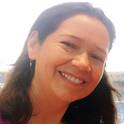In this article, we propose to approach Indigenous education beyond the formal/non-formal dichotomy. We argue that there is a critical need to conscientiously include Indigenous knowledge in education processes from the school to the community; particularly, when formal systems exclude Indigenous cultures and languages. Based on ethnographic fieldwork in Quechua schools and communities, our examination of policy and teachers in the formal setting reveals overall contradictions towards practice, where the inclusion of Indigenous knowledge, language, and community participation remains largely symbolic, despite genuine efforts from those who support Indigenous revitalization. Further, an exploration of Wanka Quechua community educational practices focused on local ecology demonstrates that community education exhibits a structure that is culturally inclusive, intergenerational and values-driven, and rigorous and complex.
- Formal and non-formal education,
- Quechua,
- Indigenous education,
- Indigenous community
Available at: http://works.bepress.com/laura_valdiviezo/9/
